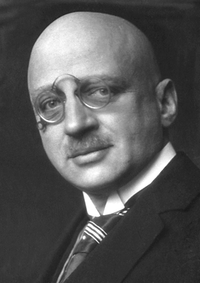
Photo from wikipedia
In this work, a novel nanosensing platform was suggested based on ruthenium for the sensitive determination of Idarubicin anticancer drugs. Ruthenium/Vulcan carbon-based nanoparticles were synthesized ultrasonication method and then characterized… Click to show full abstract
In this work, a novel nanosensing platform was suggested based on ruthenium for the sensitive determination of Idarubicin anticancer drugs. Ruthenium/Vulcan carbon-based nanoparticles were synthesized ultrasonication method and then characterized by transmission electron microscopy (TEM), X-ray photoelectron spectroscopy (XPS), and X-ray diffraction (XRD). The mean particle size of the nanoparticles calculated by the TEM analysis was found to be 1.98 nm ± 0.29 nm, and the Ru nanoparticles were mostly dispersed on the support material. Glassy carbon electrode (GCE) surface was modified with Ruthenium/Vulcan carbon-based nanomaterials (Ru@VC), and characterization of the nanosensor was performed using electrochemical impedance spectroscopy and cyclic voltammetry. The limit of detection (LOD) and limit of quantification (LOQ) values were found as 9.25 × 10 –9 M and 2.8 × 10 –8 M in buffer samples. To demonstrate the applicability and validity of developed nanosensor, it was used for the determination of Idarubicin in Idamen ® IV (10 mg/10 mL vial) and human serum sample. The results of recovery studies showed that the Ru@VC/GCE nanosensor was free from excipient interferences in the dosage forms of injection, and it can be successfully applied to biological samples.
Journal Title: Scientific Reports
Year Published: 2020
Link to full text (if available)
Share on Social Media: Sign Up to like & get
recommendations!